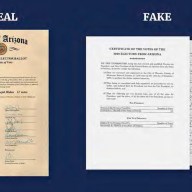Awake at 6 a.m. Tending to daily hygiene, followed by breakfast. Then the workday, dinner and early to bed.
Sound ordinary? It’s Frank De Winne’s life in space. The Belgian astronaut recently returned from a six-month stay on the International Space Station (ISS). “When you do a short spaceflight, you worry about not being able to take showers, breathe fresh air or eat fresh food,” he explains. “When you’re in space for six months, things become routine. The hardest thing is being away from your family.”
Until a decade ago, it wasn’t even possible to survive in space for that long. But today, astronauts routinely spend half a year at the ISS. “You essentially have the same schedule every day,” explains De Winne. “After breakfast, you work. Then lunch, dinner, and in the evening you plan the next day’s work. Then you e-mail your family. If you have free time, you look out of the window.”
And you exercise, since weightlessness weakens the muscles.
Work onboard the International Space Station (ISS) includes perfecting the ISS itself; it has been under construction since 1998. But primarily, astronauts carry out scientific experiments for researchers on Earth.
“The Apollo capsule had space for three guys to sit, while the ISS is the size of three school buses,” says Dr. Erica Wagner, director of the X Prize Lab at MIT. “And the food has improved a lot. But there won’t be any significant improvement in comfort for our astronauts. After all, the ISS is a government laboratory.”
The ISS is jointly operated by NASA, the European Space Agency and the Russian Space Agency.
“Our personal living quarters are the size of a phone booth,” says De Winne.
In five years, Boeing will join Virgin Galactic and others in offering trips to space. But travelers won’t have to fear a Spartan existence. “When space tourism takes off, material comfort will increase,” says Wagner. “Soon we’ll see sex, dancing and alcohol in space.”
Several companies are already developing beer for space. And both space travelers and Earth-dwellers alike can look forward to space sports — three-dimensional games developed in weightlessness.
A whole new way of space recycling
Due to limited resources in space, astronauts pioneer sustainable living.
“We only use 300 milliliters of water every day,” explains Frank De Winne.
“To make it last, we use washcloths. When we’ve cleaned ourselves, we hang them up and recycle the evaporated water. Our urine is recycled into drinking water, too.”
On average, 70 percent of water on the International Space Station is recycled.
“It’s like drinking the same cup of coffee over and over again,” says De Winne.
Would you like wasabi with that?
As in the past, astronauts’ food comes in dry packages. Still, space food has improved significantly: Astronauts can now make complete meals like shrimp salads or macaroni and cheese.
“But in space you lose some of your sense of smell and taste, so many astronauts bring wasabi with them,” explains Erica Wagner of MIT.
Really hot and cold drinks are hard to make on the ISS. “And astronauts don’t drink alcohol, though some of the Russians bring vodka,” notes Wagner.
The future of space tourism
Josh Calder, partner at consulting firm Foresight Alliance
Will space tourism take off on a large scale?
Over the next decade, space tourism is likely to remain an ultra-luxury good, with costs in the millions. Even highly ambitious plans for new launch devices involve costs far more than most people could afford. It may take a radical innovation such as a “space elevator” to really change the economics.
Where else will people want to travel in the future?
We can imagine different kinds of space destinations, such as theme hotels and adventure parks — and eventually the moon. People would love to go to Mars, but that would require some remarkable new technologies to be viable as a tourist destination.
If space is becoming more like the Earth, will Earth become more like space in terms of equipment and gadgets?
Space programs may drive some technological innovations, but they probably will not have much direct effect on daily life.
















